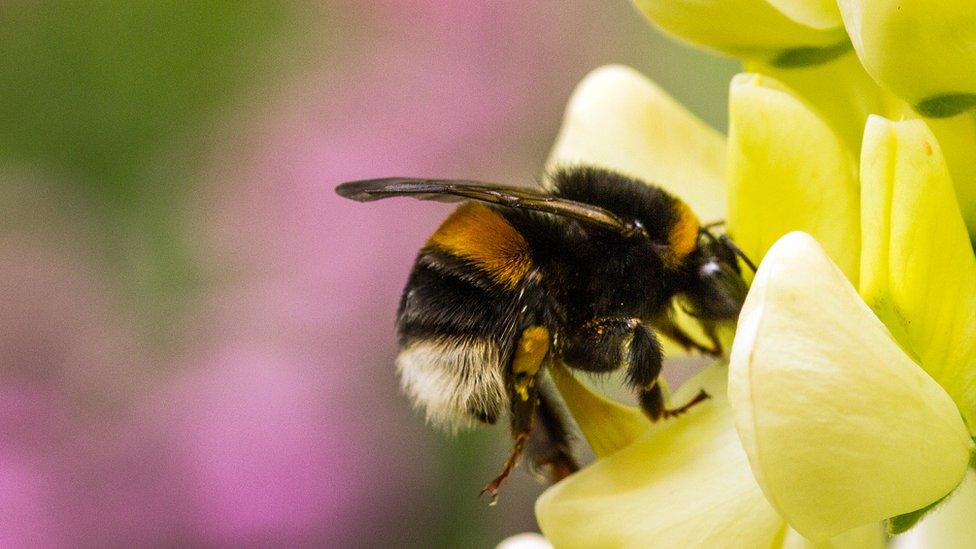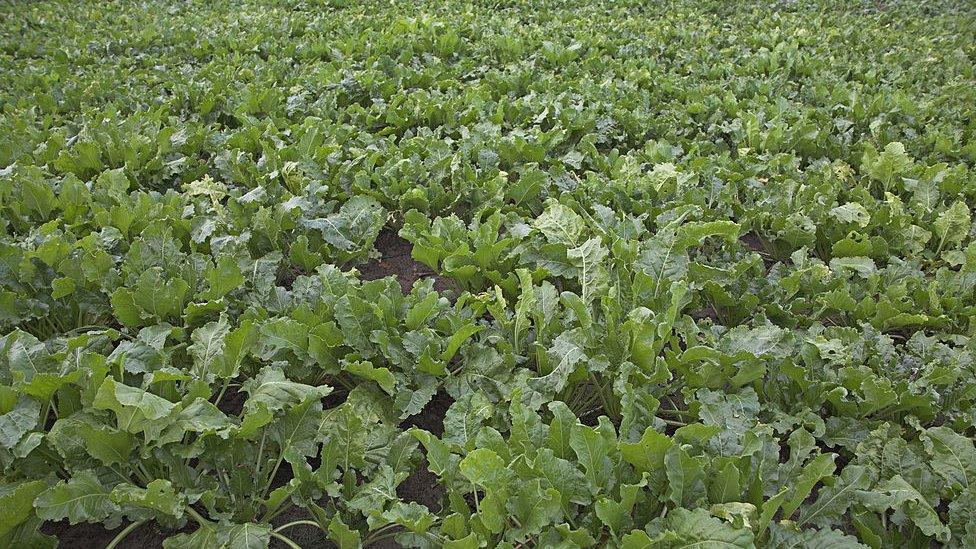UK allows emergency use of bee-harming neonicotinoid pesticide
- Published

As a family of chemicals, neonicotinoids cause harm to pollinating insects such as bees
The UK government has authorised the emergency use of a type of pesticide almost entirely banned in the EU because of the harm it can cause bees.
A Defra spokesperson said the use of one type of neonicotinoid on sugar beet was "based on robust scientific assessment".
The use would be subject to strict conditions, Defra said.
But the Chief Executive of the Wildlife Trusts, Craig Bennett, called it "scandalous".
Studies have shown that the group of pesticides damage the nervous systems and navigational abilities of bees and other pollinators. The pesticides can also end up in streams and rivers and harm aquatic life, and can persist, external for a long time in the environment.
Their outdoor use was banned in almost all EU countries in 2018. At the time of the ban, Michael Gove, then environment secretary, said the UK was in favour because it couldn't "afford to put our pollinator populations at risk".
The government is now authorising , externalone type, thiamethoxam, to be used on sugar beet in England in 2022 because of the potential risk, external of yellows viruses, spread by aphids, which can severely damage crops. It estimates that almost 70% of the national sugar beet crop could be affected.
A Defra spokesperson said that the decision "was not taken lightly".
"We evaluate the risks very carefully and only grant temporary emergency authorisations for restricted pesticides in special circumstances when strict requirements are met and there are no alternatives."
The chief executive of The Wildlife Trusts, Craig Bennett, criticised the decision.
"The Government has outlined ambitions to restore nature, promising to protect 30% of land by 2030 and reverse declines of precious wildlife - but at the same time, it is giving a green light to use a highly toxic chemical that could harm pollinating insects and pollute soils and rivers," he said.
According to the National Farmers' Union (NFU), there are 3,000 farmers who grow sugar beet, and the wider industry supports around 9,500 jobs in England, largely in the East. To minimise risks to bees, farmers will be banned from growing flowering plants for 32 months after the sugar beet crop.
NFU Sugar board chairman Michael Sly said "growers would be relieved".
"The limited and controlled emergency authorisation granted by the government for growers to use the neonicotinoid seed treatment was to give them the tools to tackle this disease in this event of severe pest pressure, which we must remember caused crop losses of up to 80% in 2020."

Sugar beet crops can be devastated by yellows viruses
Stephanie Morren from the RSPB said, "We are in a nature and climate emergency, and with farming accounting for 75% of the land in England we cannot reverse nature's decline without the support of our farmers. But highly toxic pesticides like neonicotinoids have no place in a sustainable farming system.
"Questions must be raised about how approving even temporary use of these chemicals and endangering our declining bee populations is in any way consistent with halting wildlife decline. Instead, farmers must be supported to reduce our reliance on these harmful chemicals," she said.